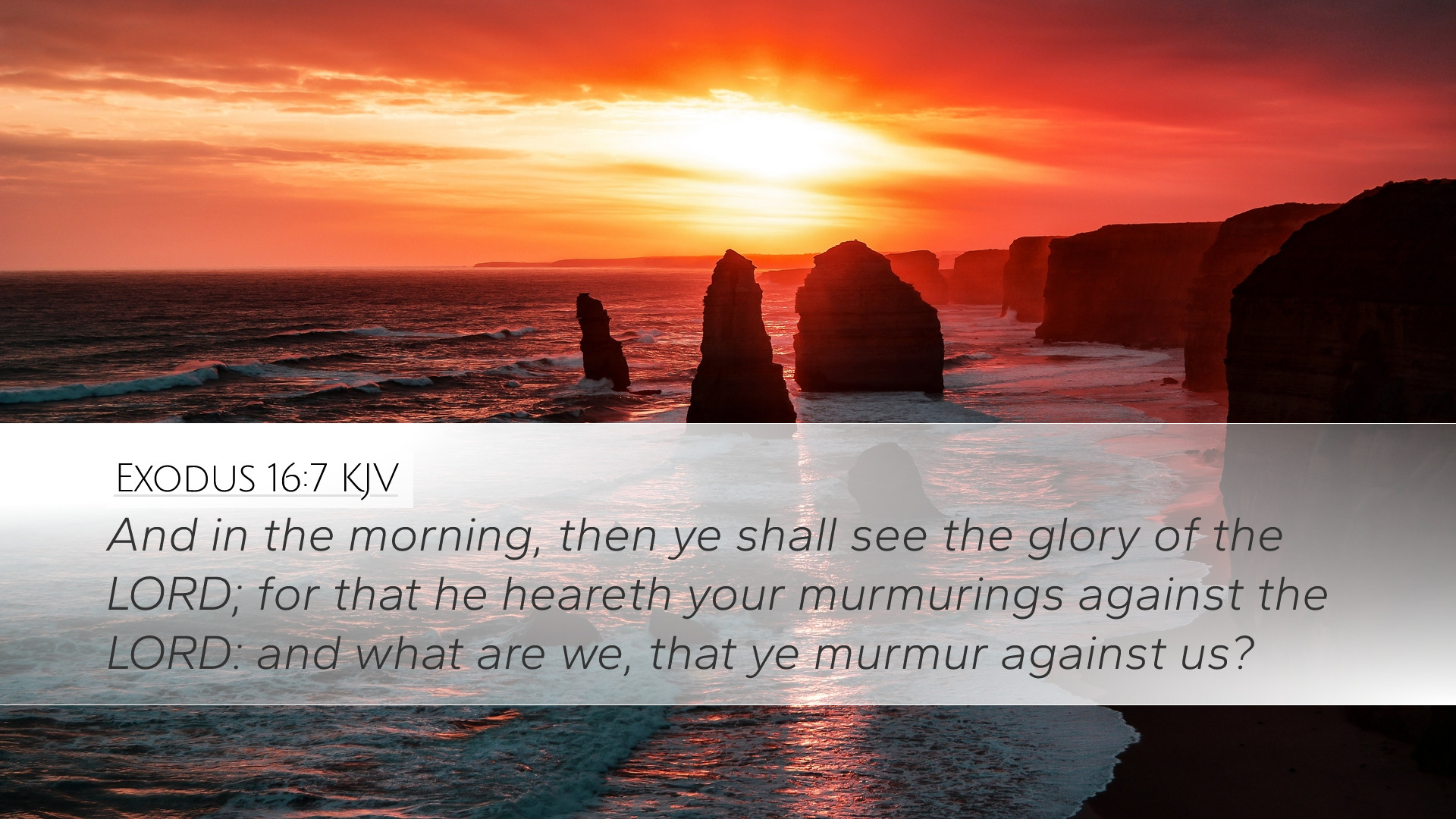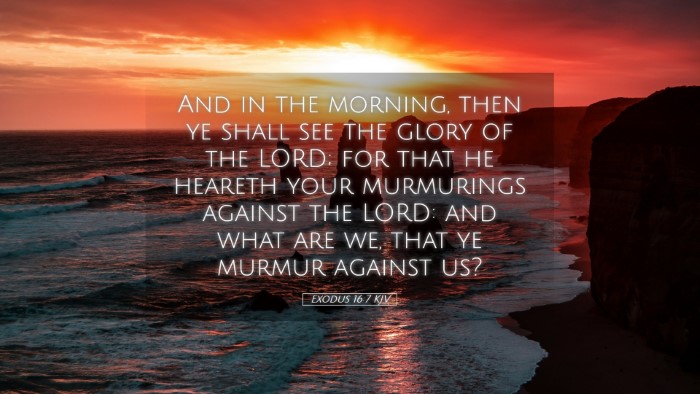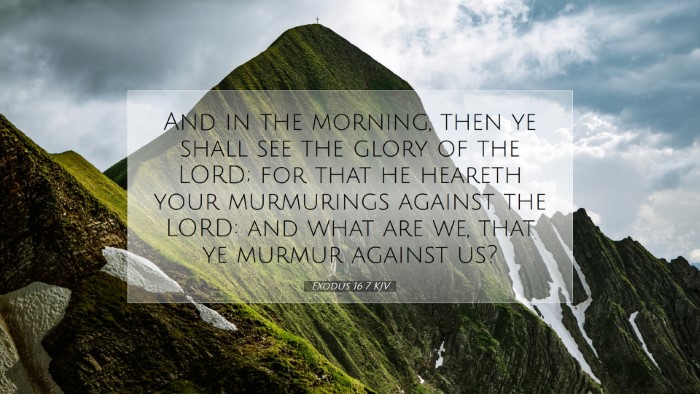Commentary on Exodus 16:7
Exodus 16:7 states: "And in the morning, then ye shall see the glory of the LORD; for that he heareth your murmurings against the LORD: and what are we, that ye murmur against us?"
Introduction
This verse is central to understanding God's providence, His glory, and the people's relationship with Him during their wilderness wanderings. It highlights the significance of divine assurance, faith amidst uncertainty, and the cognizance that God is actively present in the trials faced by His people.
Contextual Background
The Israelites had just departed from Egypt and were facing numerous hardships in the wilderness. Exodus 16 describes their complaints about food. The passage reveals their lack of faith and understanding of God’s faithful provision. In this context, Moses addresses their grievances, which were directed not merely towards human leaders but primarily towards God Himself.
The Glory of the LORD
Matthew Henry notes that God's glory is often revealed in His acts of provision and deliverance. In Exodus 16:7, God's promise to reveal His glory sets the stage for the miraculous provision of manna. This emphasizes that through their needs and complaints, God wishes to display His faithfulness and divine nature.
- Visibility of God's Glory: The concept of seeing the glory of the LORD is key; it implies that God's glory is both visible and experiential.
- Faithful Provision: His provision manifests in physical necessities but also serves a deeper purpose: to affirm His sovereignty and love for His people.
The Nature of Grumbling
Albert Barnes emphasizes the serious nature of murmuring against God. The Hebrews complained about their situation, which reflects not just dissatisfaction but a spiritual failing that calls into question God's character and abilities. Their murmuring reveals:
- Lack of Faith: The Israelites doubted God's capability and willingness to provide for them despite prior miracles.
- Misplaced Focus: Their focus on immediate need blinded them to God's past faithfulness and His promises for the future.
What Are We?
The phrase "what are we" signifies humility and perspective in the face of complaints. Adam Clarke interprets this as a reminder that Moses and Aaron are merely vessels used by God. Their role should not be blamed for the conditions faced by the Israelites. This statement introduces essential principles about leadership and communal responsibility:
- Vessel of God: Leaders are instruments of God, charged with guiding His people; criticisms directed at them can often reflect deeper, unaddressed issues with God Himself.
- Community Understanding: The recognition ‘what are we?’ fosters a collective sense of purpose rather than individualistic dissent.
Theological Implications
This passage brings to light several theological themes valuable for pastors and theologians:
- Divine Providence: God is intimately involved in the lives of His people, responding to their needs and weaknesses.
- Human Nature: Exodus 16:7 reflects the frailty of human nature; despite witness to divine miracles, doubt can creep in.
- God’s Patience: God's willingness to respond to murmurs with grace rather than swift judgment showcases His mercy.
Practical Applications
For pastors and students studying this text, there are practical applications that arise:
- Encouragement in Trials: Leaders should remind congregations of God’s faithfulness in times of need, urging them to trust in His provision.
- New Perspectives on Grumbling: Encourage believers to model resilience and gratitude rather than complaint.
- Community Reminders: Highlight the role of community in faith journeys, preserving unity and supporting each other in trials.
Conclusion
Exodus 16:7 serves as a poignant reminder of the relationship between God and His people, illuminating the tension between divine providence and human frailty. Through His glory, God reassures His people of His presence and commitment, inviting them into a deeper faith. The historical context, coupled with its theological implications, continues to inspire and instruct the church today.


